The Australian Bureau of Statistics (ABS) has released its monthly inflation indicator for January, which posted a 3.4% rise over the year, well below economists’ expectations of a 3.6% rise.
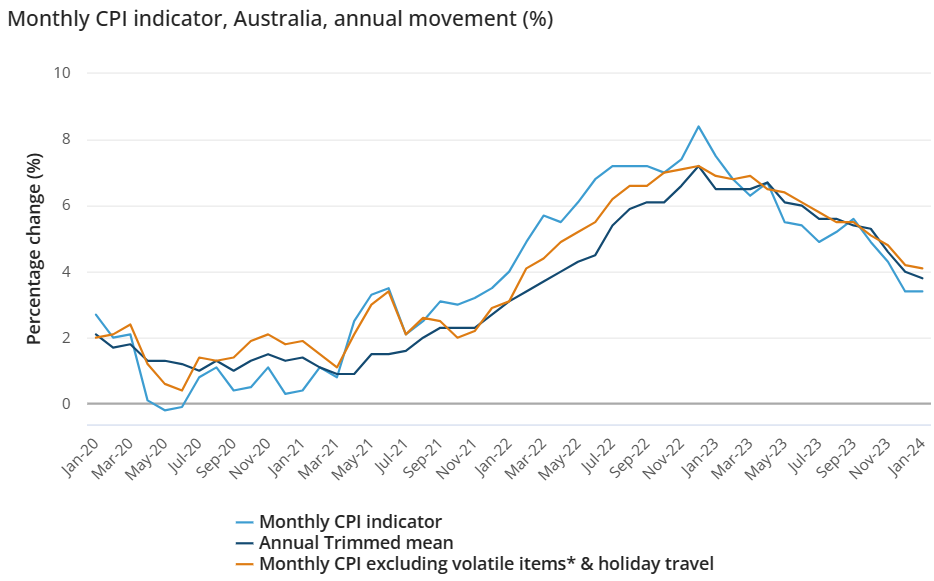
The most significant price rises were Housing (+4.6%), Food and non-alcoholic beverages (+4.4%), Alcohol and tobacco (+6.7%) and Insurance and financial services (+8.2%).
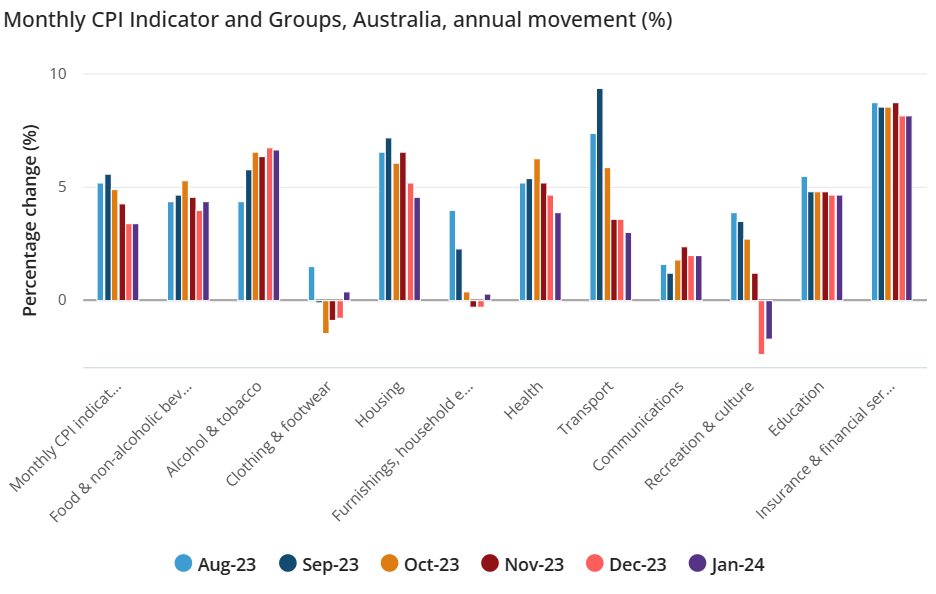
Housing, which comprises nearly one quarter of the CPI basket, continues to drive overall inflation.
New dwelling prices increased 4.8% in the year to January, down from 5.1% in December. Price increases continue to trend down and have moderated when compared to levels seen in 2022, suggesting improved material availability and weak new demand.
Rental prices rose 7.4% in the year to January, matching the annual growth rate seen in December. Rental prices continue to climb, reflecting high demand for rental homes and tight rental markets.
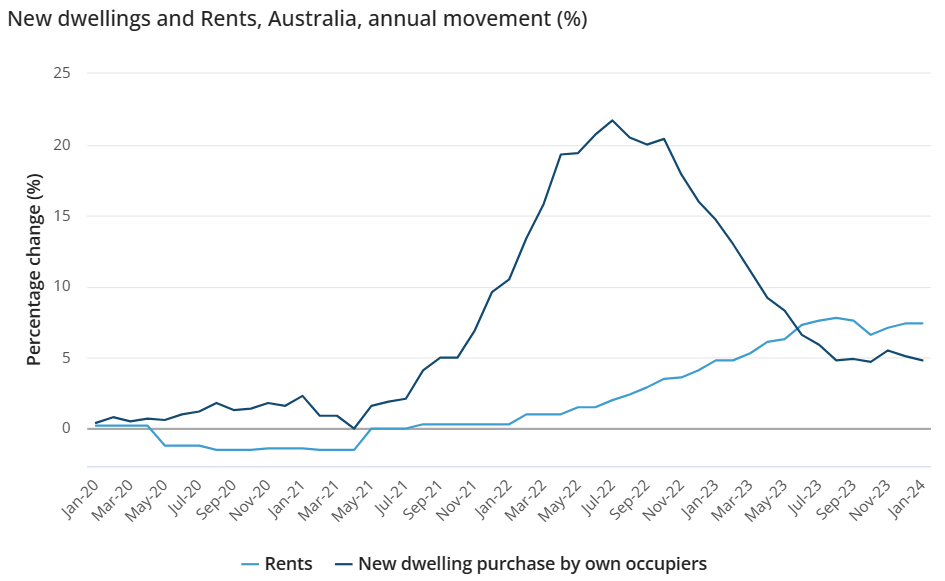
On a positive note, energy inflation has turned disinflationary.
Electricity costs increased 0.8% in the year to January 2024, up from 0.4% in December.
Gas prices declined 1.4% in the year to January 2024, down from an 8.5% increase in December. The yearly movement was influenced by base effects, with the substantial monthly price increase of 8.1% in January 2023 no longer contributing to the January 2024 annual figure.
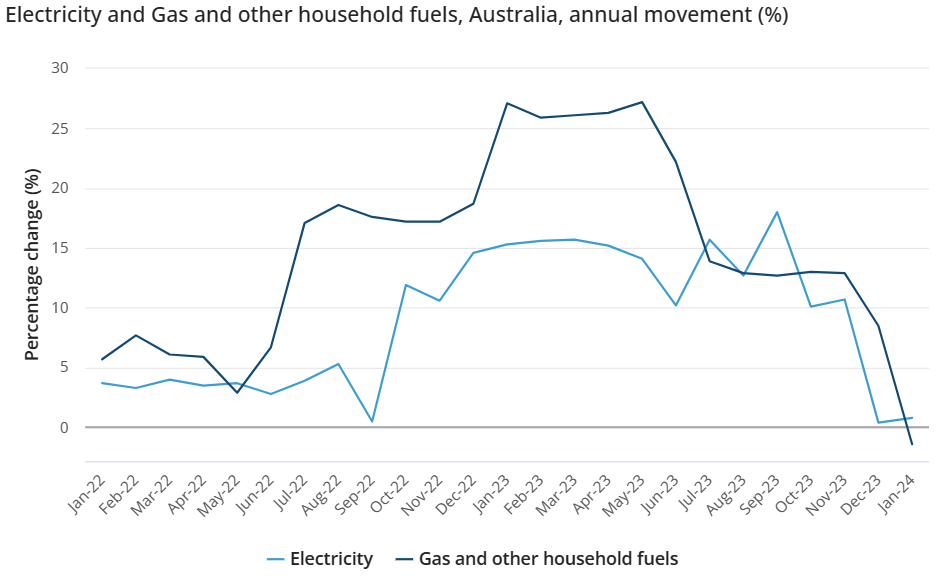
That said, Energy Bill Relief Fund rebates introduced from July 2023 have moderated the increase in electricity bills.
Excluding the Energy Bill Relief Fund rebates, Electricity prices would have increased 15.3% in the 12 months to January 2024, as illustrated below.
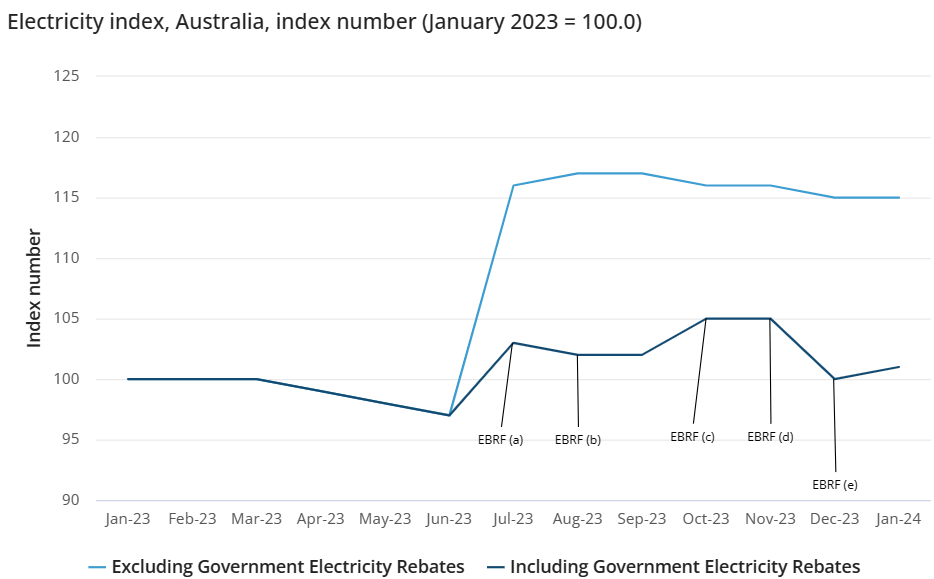
Commenting on the results, Michelle Marquardt, ABS head of prices statistics, said: “Annual inflation for the monthly CPI indicator was steady at 3.4% and remains the lowest annual inflation since November 2021”.
“When excluding volatile items from the monthly CPI indicator, the annual rise in January was 4.1%, down from 4.2% in December”.
“Annual inflation when excluding volatile items has been declining since the peak of 7.2% in December 2022”, Marquardt said.
Trimmed mean (core) inflation also fell to 3.8% in the year to January (prior 4.0%).
Australia’s downward drift in inflation remains intact. So too is MB’s call for rate cuts in the second half.

